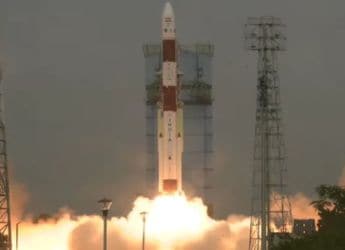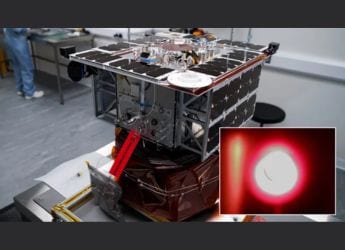- Home
- Mobiles
- Mobiles Features
- Redmi Note 7 Pro vs Redmi Note 6 Pro: Specifications, Price Compared
Redmi Note 7 Pro vs Redmi Note 6 Pro: Specifications, Price Compared

Redmi Note 7 Pro price in India starts Rs. 13,999, same as Redmi Note 6 Pro launch price
Xiaomi finally unveiled the Redmi Note 7 Pro alongside the Redmi Note 7 in India. The Redmi Note 7 Pro comes with a 48-megapixel Sony IMX586 sensor at the back and a Qualcomm Snapdragon 675 SoC. Other key specifications of the phone include a 4,000mAh battery and Android 9 Pie-based MIUI 10 operating system. India is the first market where the Redmi Note 7 Pro has been launched, with the company's home market China still waiting for the phone's release. The Redmi Note 7 Pro will be sold in two RAM + storage options in India, and will be made available on Flipkart, Mi.com, and Mi Home stores initially. The phone will later reach the Mi partner retailers.
The Redmi Note 7 Pro sees an upgrade in display, processor, and camera when compared with its predecessor Redmi Note 6 Pro. We pit the Redmi Note 7 Pro with the Redmi Note 6 Pro to detail how the new phone stacks up against its predecessor, and if it's a worthy enough upgrade.
Redmi Note 7 Pro vs Redmi Note 6 Pro price
The Redmi Note 7 Pro is priced starting at Rs. 13,999 for the 4GB + 64GB variant, whereas the 6GB + 128GB version will be offered at Rs. 16,999. It will be available starting March 13 (12pm IST) via Flipkart, Mi.com, and Mi Home stores, with select offline retailers to follow.
It will be made available in three colours - Neptune Blue, Nebula Red, and Space Black. The first two colour variants come with a gradient finish on the back. Xiaomi has partnered with Airtel to offer the buyers of Redmi Note 7 Pro with up to 1,120GB of 4G data, unlimited calling, and free access to Airtel TV premium. The phone will also come bundled with a free "ultra-slim" case.
Xiaomi Redmi Note 6 Pro was launched in India in November last year, and its price starts from Rs. 13,999 for the base 4GB RAM/ 64GB inbuilt storage variant and Rs. 15,999 for the one with 6GB RAM and 64GB storage. It is sold on Flipkart, Mi.com, and Mi Home stores, and is available in Black, Blue, Red, and Rose Gold colour options.
Redmi Note 7 Pro vs Redmi Note 6 Pro design
The dual-SIM (Nano) Xiaomi Redmi Note 6 Pro runs MIUI 10 on top of Android 8.1 Oreo out-of-the-box, while the Redmi Note 7 Pro runs on MIUI 10 based on Android Pie. The Redmi Note 7 Pro features a 6.3-inch full-HD+ screen with 19.5:9 aspect ratio and waterdrop-style notch and front and back of the phone is covered by 2.5D curved Gorilla Glass 5 for added durability. The Redmi Note 6 Pro, on the other hand, features a smaller 6.26-inch full-HD+ (1080x2280 pixels) IPS LCD panel with a 19:9 aspect ratio, 2.5D curved glass, Corning Gorilla Glass protection. The predecessor sports a wider notch, and both the phones come with slight chins at the bottom of the display.
Redmi Note 7 Pro vs Redmi Note 6 Pro processor and storage
The Redmi Note 7 Pro is powered by 11nm octa-core Qualcomm Snapdragon 675 SoC, coupled with 4GB/ 6GB of RAM, and 64GB/ 128GB of inbuilt storage with a microSD card slot (up to 256GB). In comparison, its predecessor is powered by an octa-core Qualcomm Snapdragon 636 SoC, coupled with an Adreno 509 GPU, 4GB/ 6GB of LPDDR4x RAM, and 64GB of onboard storage. The Redmi Note 6 Pro storage is expandable via microSD card (up to 256GB), though you will lose access to one of the SIM cards.
Redmi Note 7 Pro vs Redmi Note 6 Pro Camera
Redmi Note 7 Pro packs a dual camera setup on the back that includes a 48-megapixel primary sensor with f/1.79 lens and a 5-megapixel secondary depth sensor. The company has also added a number of artificial intelligence (AI) powered features in the camera app of the phone, including AI scene detection, AI Portrait 2.0, and Night mode. Additionally, there is a 13-megapixel front shooter on the phone as well as support for 4K video recording on the rear camera.
In terms of optics, the Redmi Note 6 Pro bears a vertically aligned dual rear camera setup as well, but with a 12-megapixel primary sensor - coupled with f/1.9 aperture and 1.4-micron pixel size - and a 5-megapixel depth sensing secondary sensor. The company is touting the presence of Dual Pixel Autofocus, EIS, AI scene detection, and AI Portrait 2.0 (with Dynamic Bokeh, Light Trails, and Studio Lighting). On the front, the Redmi Note 6 Pro sports yet another dual camera setup. There is a 20-megapixel primary sensor (with 1.8-micron pixels) and a 2-megapixel secondary sensor, with support for 4-in-1 Super Pixel, AI Face Unlock, and AI Portrait Selfie (with real-time portrait preview), AI Beautify, as well as AI Scene Detection.
Both the phones sport a rear mounted fingerprint sensor, and pack the same 4,000mAh battery. But the Redmi Note 7 Pro comes with Quick Charge 4 support and the predecessor supports Quick Charge 3.0. The Redmi Note 7 Pro also supports USB Type-C, whereas the Redmi Note 6 Pro comes with Micro-USB port. The new Redmi phone's dimensions are 159.21x75.21x8.10mm and it weighs 186 grams, and the Redmi Note 6 Pro measures 157.91x76.38x8.26mm and its weight is 182 grams.
Do Redmi Note 7 Pro, Redmi Note 7, and Mi Soundbar redefine their price segments? We discussed this on Orbital, our weekly technology podcast, which you can subscribe to via Apple Podcasts or RSS, download the episode, or just hit the play button below.
Catch the latest from the Consumer Electronics Show on Gadgets 360, at our CES 2026 hub.
Related Stories
- Samsung Galaxy Unpacked 2025
- ChatGPT
- Redmi Note 14 Pro+
- iPhone 16
- Apple Vision Pro
- Oneplus 12
- OnePlus Nord CE 3 Lite 5G
- iPhone 13
- Xiaomi 14 Pro
- Oppo Find N3
- Tecno Spark Go (2023)
- Realme V30
- Best Phones Under 25000
- Samsung Galaxy S24 Series
- Cryptocurrency
- iQoo 12
- Samsung Galaxy S24 Ultra
- Giottus
- Samsung Galaxy Z Flip 5
- Apple 'Scary Fast'
- Housefull 5
- GoPro Hero 12 Black Review
- Invincible Season 2
- JioGlass
- HD Ready TV
- Laptop Under 50000
- Smartwatch Under 10000
- Latest Mobile Phones
- Compare Phones
- Vivo Y500i
- OnePlus Turbo 6V
- OnePlus Turbo 6
- Itel Zeno 20 Max
- OPPO Reno 15 Pro Mini 5G
- Poco M8 Pro 5G
- Motorola Signature
- Vivo Y50e 5G
- Lenovo Yoga Slim 7x (2025)
- Lenovo Yoga Slim 7a
- Realme Pad 3
- OPPO Pad Air 5
- Xiaomi Watch 5
- Huawei Watch 10th Anniversary Edition
- Acerpure Nitro Z Series 100-inch QLED TV
- Samsung 43 Inch LED Ultra HD (4K) Smart TV (UA43UE81AFULXL)
- Asus ROG Ally
- Nintendo Switch Lite
- Haier 1.6 Ton 5 Star Inverter Split AC (HSU19G-MZAID5BN-INV)
- Haier 1.6 Ton 5 Star Inverter Split AC (HSU19G-MZAIM5BN-INV)

















